Google IO: top 5 moments
For a show that was little on hardware there was a lot to talk about
Google Maps photo sphere adds tours via user-generated pictures
The first day of Google IO started off with the company's senior executives touting many new accomplishments and outlining their plan for Android domination. In fact, one of the most notable announcements had to do with their operating system's activation numbers.
Google announced during its Google IO keynote in San Francisco on May 15 that Android hit 900 million activated users in 2013.
However, Google's Sundar Pichai, senior vice president of Android, Chrome and Apps, mentioned that there are billions of people in the world and that they have a "long way to go."
- Read more about how Android is taking over the world
Of course, there is much more going down at this year's conference than news about Android's growing user base, and we've gathered up all the latest for you right here. Read on for more.
Google Glass hands on review
Wonder what it's like to use and, equally as important, wear Google Glass? We got the opportunity at IO and have our hands on review up now for eager eyes.
Fixing Android fragmentation
It's a common complaint - Google releases Android Jelly Bean, but many users are still stuck on Android Gingerbread. Google pushes out the updates, but everyone else - carriers, phone makers - can't keep up. What's Google to do??
Get daily insight, inspiration and deals in your inbox
Sign up for breaking news, reviews, opinion, top tech deals, and more.
The Android team is aware of the issue, and revealed during a Fireside Chat at IO that it's a problem it ponders on often. The team is thinking up ways to streamline the process, and one approach would be to make a more layered platform that would in turn make Android more efficient.
It's mildly-reassuring that they're thinking about fragmentation, and perhaps we'll see an easier way to upgrade embedded in Android 4.3's code when it's released. But rest easy, Nexus Galaxy S4 buyers, that your devices will receive more timely updates.

Glass worries
While we learned of a few more (albeit major) apps heading to Glass as well as streaming video capabilities, Google couldn't escape the privacy concerns of Glass at this year's conference.
Instead of users bringing up the concerns, it was the Congressional Bi-Partisan Privacy Caucus asking CEO Larry Page to address how Google plans to protect people's privacy as the device heads into the mainstream. Page has until June 14 to get back with some answers.
The Glass team told the IO crowd May 16 that privacy was a top-of-mind concern when developing the hardware, as reported by ABC News and said that someone will know if they are being recorded because someone with Glass will be "paying attention to you."
Cool?
Android 4.3 meets white Nexus 4?
We saw neither an Android upgrade nor a new Nexus during the Google IO keynote, but there may be a new phone waiting in the conference center's wings.
While we reportedly won't see it released until June 10, a white Nexus 4 packing Android 4.3 was beheld by at least one lucky IO-goer.
Adios, Google+ Games
Out with the old, in with the new - at least when it comes to games at Google.
While the company ushered in its new Google Play games services during IO, the company revealed on Day 2 that it is snipping support for all Google+ Games on June 30.
Facebook, Twitter apps coming to Glass
Hear that, Glassholes? You'll soon have bigger apps available on your headgear, namely Facebook, Twitter and Tumblr. CNN, Elle and Evernote will join The New York Times and Path.
What's more, Google plans on adding streaming video support as well as expanding its Glass Developer Kit.
Seems like only a matter of time before we get a full fledged Glass app store...
Get on the VP9 crazy train
When Google wraps up with VP9, it's new video codec due out June 17, it wants developers to jump on the more efficient tech ASAP.
"If you adopt VP9, as you can very quickly, you'll have tremendous advantages over anyone else out there using H.264 or VP8," VP9 Engineer Ronald Bultje told the IO developer crowd, as reported by CNET. "You can save about 50 percent of bandwidth by encoding your video with VP9 vs. H.264."
What's the advantage for Google? YouTube of course, it's 4 billion visitor per day property.
"With a codec as good as VP9, we can significantly increase the size of the Internet," Matt Frost, senior business product manager for the Chrome Web Media Team, said. "We can significantly increase the speed of the internet."
Google Music takes on Spotify
Google Music has upped the ante in the streaming music game. With a $9.99 monthly fee ($7.99 if you sign up before June 30) it's directly taking on established streaming services like Spotify and Rdio.
Can Google Music dislodge the incumbents? Or is it too little too late? We've stacked up what we know so far.
- Read more: Google Music vs Spotify
Google Play getting in the game
Google's Vice President of Android Product Management Hugo Barra, announced Google Play game services for iOS and Android at Google IO.
Google Play game services include cloud saves that work across devices, achievements, and leaderboards that use Google + circles.
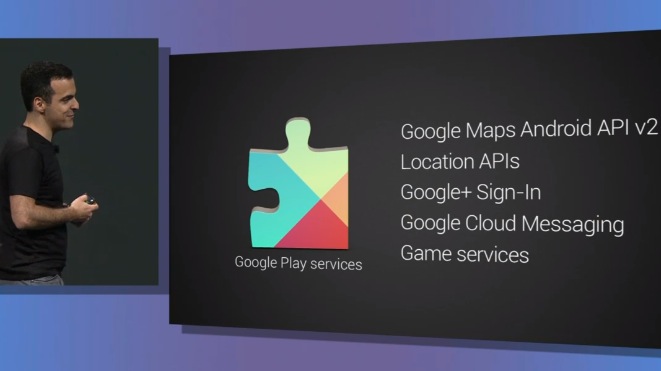
Barra tried to demo how the new service works but a spotty internet connection kept the Google Play team from showing off its new capability.
- Read more about Google Play game services.
'So you guys want to hear about music?'
That's what Android Engineering Director Chris Yerga asked the Google IO crowd, which then lead to the unveiling of one of Google Play's more exciting new developments.
Yerga proudly showed off Google Play Music All Access, Google's new subscription music service, that guides users seamlessly through the world of streaming music.
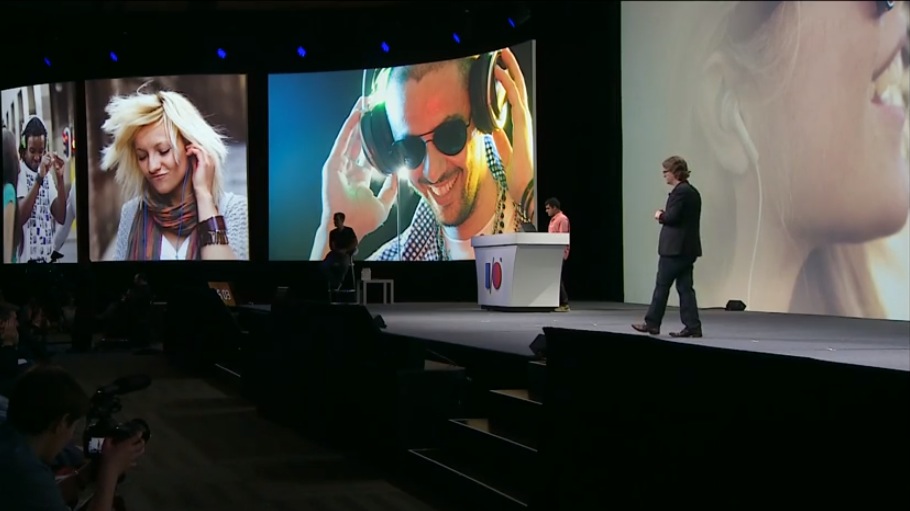
The service will include music recommendations made by automatic algorithms as well as specially curated recommendations and playlists.
Google Play Music All Access will also make it easy to view upcoming tracks and "swipe away" unwanted tracks, which will help it compete against more restrictive services like Pandora and Spotify.
- Read more about Google Play's new music service.
Meet the Nexus-ized version of the Galaxy S4
Google today announced its very own Samsung Galaxy S4 today during the Google IO developers conference.
The device runs stock Android 4.2 with the same software that runs on the Nexus 4 - turning it into a Google/Galaxy S4 mish mash.
It will cost $649 unlocked (with an unlocked bootloader) on both AT&T and T-Mobile and house 16GB of storage.
- Read more about Google's new unlocked S4.
Google+ getting a facelift
Google+, Google's social networking platform, is getting a bit of a revamp. During the Google IO conference, it was announced that Google +'s stream will be redesigned into a more column-like interface.
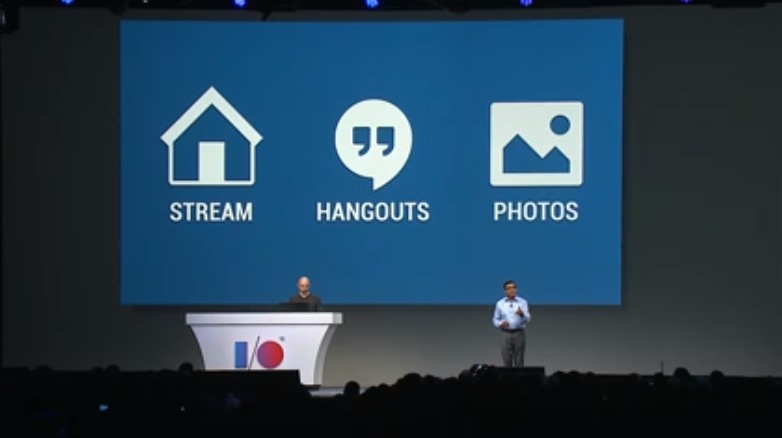
This is the first of 41 new features that will roll out across Google+.
- Read more about the Google+ redesign.
Google Play in the classroom
Chris Yerga, Android's engineering director, came back to the stage at Google IO to discuss how Google Play can help improve education tools.
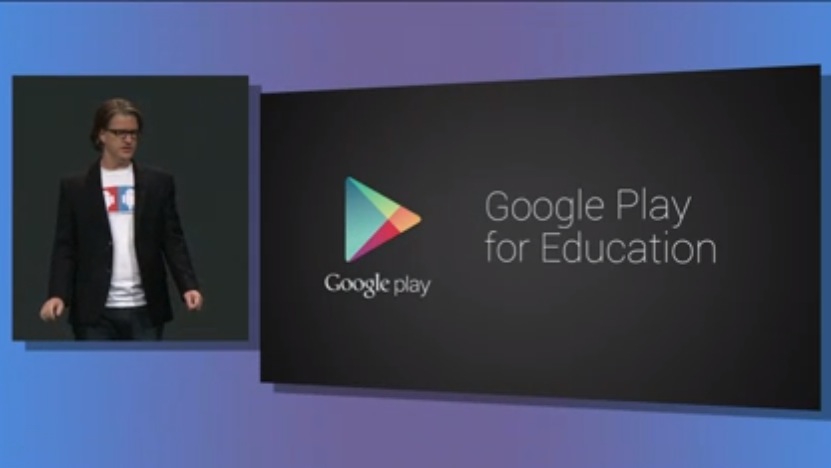
Google Play for Education is a specialized app store with content designed for students and teachers. Educators will be able to easily send apps to all their students at once, purchasing bulk licenses on schools' dimes.
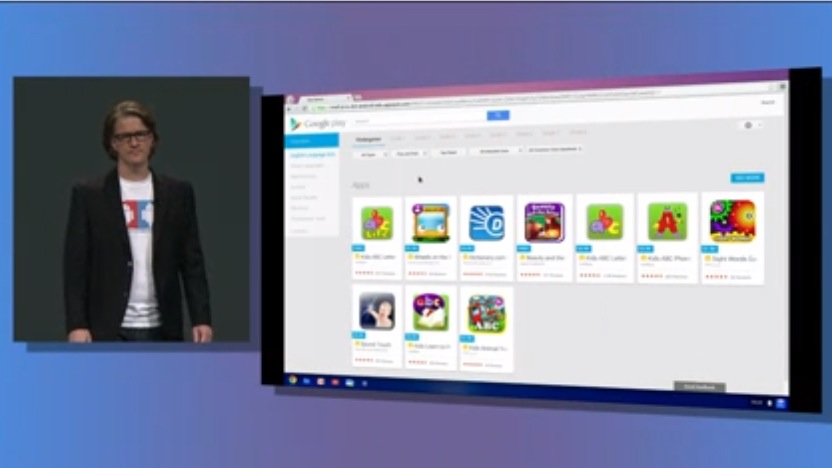
Google Play for Education will launch in the fall.
- Read more about Google Play for Education.
'Conversations that last...'
Google is trying to get out of the way of your interactions with other people online. And in an effort to accomplish that, they've added a new Hangouts messaging system to Google +.
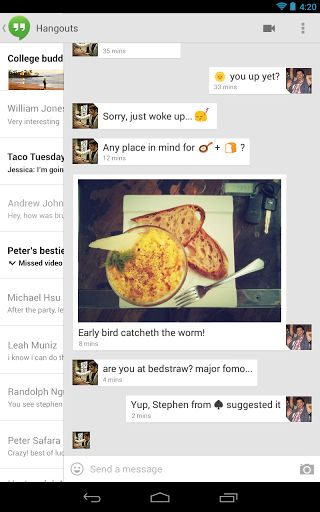
Hangouts was the replacement name floated around for "Babel" and now it looks very real.
Users can take a conversation from device to device, and those messages will appear in a list format.
- Read more about the Hangouts application.
'The end of search as we know it'
Google IO yielded another interesting announcement regarding its search functionality today. The company that basically refined and improved upon how we access information on the internet unveiled the "end of search as we know it."
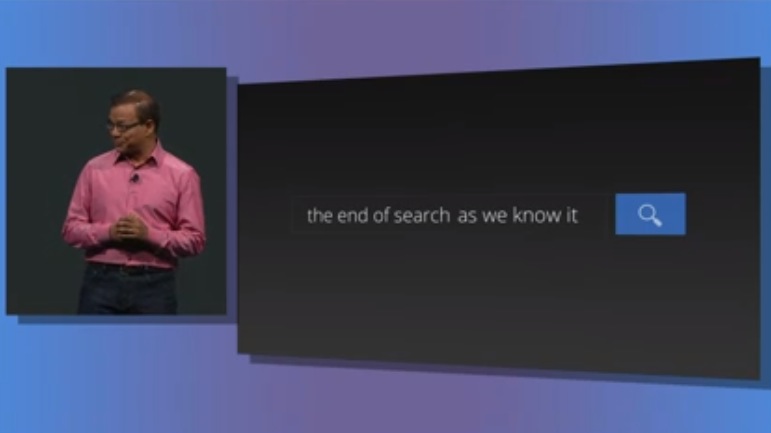
This new and improved search functionality will incorporate Google Now across all devices, as well as Answer, Converse and Anticipate experiences.
This means you can ask Google Now a question about a location and use pronouns such as "it" in a follow up question about the same location, and Google Now will know what you know what you're talking about.
- Read more about Google Now's new features.
The new Google Maps for mobile
Google Maps Director Daniel Graf was quick to point out that Google Maps stands above the competition because it's easy to use and above all "accurate" - an obvious dig at the Apple Map-tastrophe that unfolded late last year.
And with that he launched into an introduction of the new Google Maps for Android and iOS users.
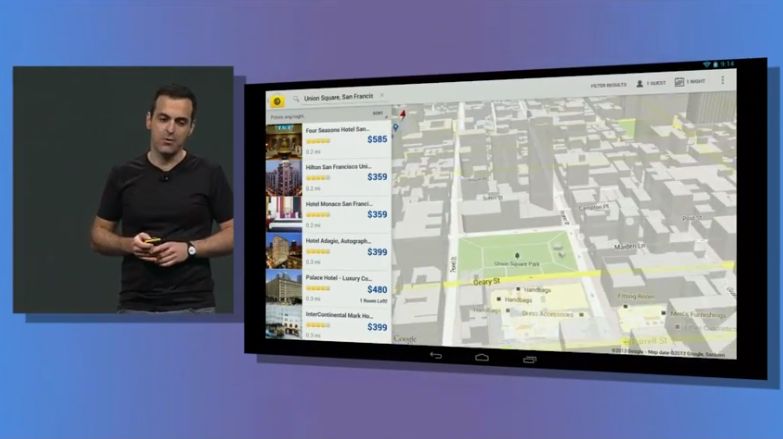
Graf walked through some of the new features which includes Zagat listing integration, improved UI features, better 3D, and a dedicated tablet experience. But that isn't all....
During the subsequent presentation for Google Maps Photo Shere - a new 3D mapping service compiled from user photos - Google IO attendees oohed and ahhed at the 360-degree 3D tour of the inside of St. Peter's Basilica.
- Read more about the new Google Maps.
Larry Page takes the stage and things get interesting
Just as the keynote was winding down, Larry Page - Google's founder and chief executive - took the stage to wax poetic on the evolution of technology and the state of the industry.
In a sometimes long and wandering stream of consciousness, Page marveled at how far technology has come but then lamented the fact that the industry is not progressing as quickly as it should.
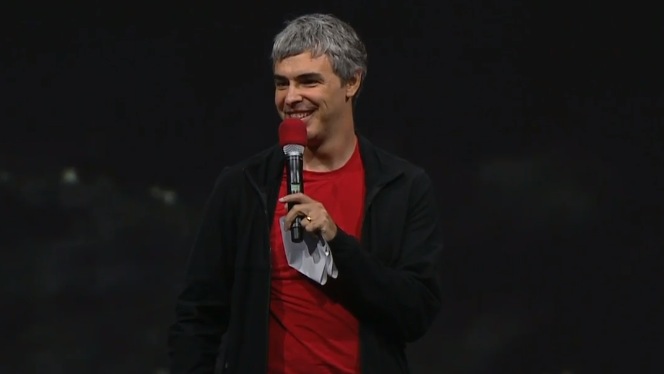
In fact, during a Q&A session with the audience, Page let it slip that he was "sad at the industry's behavior" when it comes to open web standards.
He specifically called out Microsoft about their lack of interoperation with instant messaging saying that "Microsoft took advantage of that by interoperating with us, but not doing the reverse."
Read more about Larry Page's thoughts on the industry.
Google Galaxy S4 explained
Hugo Barra announced a new brand of the Samsung Galaxy S4 that runs a more pure version of Android - like the one found on the Nexus 4 - today.
But, this announcement was a bit confusing since the S4 already runs Android. Barra tried to explain the key differences between Google's unlocked version and what's found on Samsung's flagship device, but this still left some scratching their heads?
So, if you're wondering what the difference is between the two S4's, read our "what you need to know" to get a full look at what you'd get on Google's Samsung Galaxy S4.
- Take a look at Google's Galaxy S4: what you need to know.
Here's our list of what we expected to see
Google IO never ceases to amaze. We can't ignore the fact that bits of the hottest tech have come out of Google's annual developer gathering, while some of the world's most anticipated advancements, such as Google Glass, have captured our imaginations during the conference.
This year's show is stomping through San Francisco's Moscone Center May 15 - May 17, and we anticipate the 2013 iteration to be one for the ages.
Google always has something cooking, whether it be a new tablet, a new way to communicate or a new way to view the world. Unfortunately for hardware junkies, it sounds as though this year will be heavy on the dev side and less so on buy-able products.
Yet, there's still reason to tune it - the software of today heavily influences the gadgets of tomorrow, so we could see the beginnings of great Google developments come out of the event's three days.
And who knows, maybe Sundar Pichai was just throwing us off the scent. We've seen those boxes of attendee schwag.
Without further ado, here are the things we expect from Google IO 2013.
1. Sound of sweet subscription music service
A few 11th hour reports turned up some very interesting news: Google may introduce a new subscription music service - or services - the week of IO, even as early as Day 1 of the conference.
The Verge reported that Google Play and YouTube may each receive separate subscription music services, with the announcement coming during IO.
Other reports - namely from the Wall Street Journal and New York Times - left the impression that the YouTube side of the equation was a little sketchier than the Google Play deal, but regardless it looks as though Google is ready to take on services like Spotify and beat Apple's rumored iRadio service to the punch.
2. Dropped your Google Wallet
Looks like we're confirmed for at least one IO no show. Google was planning on announcing a physical credit card at the dev conference, but following a less than ideal demo run, CEO Larry Page decided to nix the reveal.
There should still be announcements on additions to Wallet, including new rewards, offers and loyalty points, but alas, no CC in the flesh.
3. A new direction for Maps?
With one week to go until Google IO's opening day, a rumor on something we hadn't heard much chatter about decided to rear its head.
According to the Google System blog, Mountain View is planning a significant Google Maps redesign. Some marquee changes would be the removal of the sidebar, local search results filtered by Google+ recommendations and an emphasis on the map itself, not on all of Maps' bells, whistles and red bubbles.
Might Google roll out a new look for Maps at IO? Time will tell very shortly.
4. Google game on
We could see a very game-centric Google IO as a few signs point to a greater emphasis by Mountain View on the play pastime theme.
First up: Day One of the 2013 conference has a heavier helping of game-related dev sessions than the whole of previous years combined, a truth pointed by TechHive. Five Android sessions are devoted entirely to games.
After the sched came out, TechCrunch snatched a LinkedIn profile for Noah Falstein, "Chief Game Designer at Google." It's not clear what Falstein's job is exactly, but an earlier cached version of the vet computer game designer's profile referred to his job as "Chief Game Designer at Android Play Studio."
TechHive also tracked down the LinkedIn profile (these are proving quite enlightening, aren't they?) of Rachel Bernstein, reportedly hired by Google in April to become executive producer at Android Play Studio. Berstein formerly worked at EA and Fog City Software.
What could Google be cooking in the games department? Looks like some Android-related goodness, but we will hopefully learn much more at IO.
5. A mondo single keynote
Uh. Well, that's different. Google has decided to host a lone keynote session on the first day of IO this year, a 3-hour happening that's sure to touch on a whole bunch of things and themes.
You can catch the entire Google IO schedule right here, but expect this year's keynote to hold a whole bunch of service announcements. Whether or not we get a single "this is Google" sentiment remains to be seen, but we will find out what May 15 holds soon enough.
6. Google Now to take over homepage?
We may be in for much more than a few new cards when it comes to a Google Now announcement at Google IO.
According to some source code, Google is preparing to replace the Google homepage with version of Google Now that will offer users a personalized landing page.
7. 32GB Nexus 4 with LTE rumors abound
Though definitely unconfirmed, rumors are whipping about that Google plans to unveil a new iteration of its popular Nexus 4 phone.
This one is said to offer a few goodies, namely LTE and CDMA support, both of which have limited which U.S. carriers can support the device.
There's also word Google may debut a 32GB model, addressing storage concerns of the 8GB and 16GB variants. All this amounts to some very interesting stuff and the hope of many that such a device is forthcoming.
8. An inkling of what's going on at Motorola
We've been told for a number of months that Motorola's product development is progressing at a steady clip. Eric Schmidt told the world the products in development there are phenomenal, and CEO Larry Page chimed in with word that he's very excited about what's going on there.
The problem is, no one is telling us exactly what's going on there, and we're getting antsy.
Though there's been word Moto's new phones will be "just right" stock Android devices, we expect Google IO to give us some firmer details on the hardware under construction. It sounds like it's durable and has great battery life, but we want details!
There have been a number of leaks as of late claiming to show the elusive "X Phone," with a few images from March resurfacing in early May that dubiously portray what's actually a very nice device, something called the "XFON" for U.S. carriers that's probably too convenient to be true, and yet another handset called the XT1055 bubbling up on a Japanese site.
Hopefully, Google will put an end to all the madness at IO, though we wouldn't be surprised if it continues to bask in all the free press with out showing us anything in the plastic.
Read more about what Larry Page thinks of Motorola's upcoming products
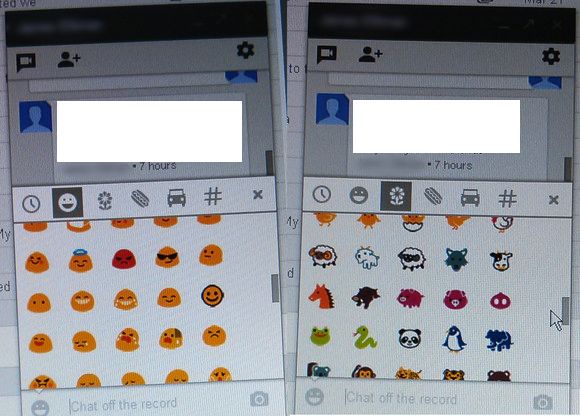
9. Blabbing about Babel
We've seen the screen grabs. We've read its description in a purported company memo. Now it's time to hear straight from Google's mouth what Babel is, what it does and when we can get it.
Reports and our own source have given us plenty on this G-chat service synthesizer, but we want, and greatly expect, Google to outline its specifics at the conference.
Babel was the working name for Google's chatty creation, but we learned May 10 from our very own insider that Google will launch the unified chat service as Google Hangouts. New screen grabs sent our way recommend users "Sign out of Hangouts," pretty solid evidence of the name change.
Employees who apparently worked on Hangouts received an email May 9 thanking them for the work on the project in the lead-up to Google IO, which our source says indicates Hangouts is destined for a conference welcome.
Look for word on Android/iOS/Chrome app availability, nifty features like "just once" notifications and potential details about when Voice will join Talk, Hangouts and Messages in the service. We don't think Google will keep its trap shut on Babel, er, Hangouts, for very much longer.
10. New Nexus 7 tablet
Come July, Google's 7-inch Nexus 7 tablet will be one year old. That's a proper retiring age in the tech world. Given that, we wouldn't be surprised to see its successor emerge at this year's Google IO.
Now that the iPad mini has officially made the 7-inch tablet a thing that people want, it would be perfect timing for the launch of the Nexus 7 successor. It's aggressively affordable $199 price tag has challenged Apple's much more expensive offering.
The rumor mill has Google teaming back up with Asus, the maker of original Nexus 7. We expect an upgraded ppi on the new Nexus tablet, something to compete with the new iPad mini 2 with retina we all expect to happen.
DigiTimes is reporting that new Nexus 7 will have 3G service and and range in price $149-$199.
In the days leading up to IO, Mingchi Kuo, an analyst for KGI securities, reported some news on a new Nexus 7 he anticipates will be unveiled during IO. According to Kuo, the price will stay at $199, though the specs will see a significant upgrade.
Among those are a Qualcomm APQ 8064 processor, narrow bezel LTPS 7-inch high-resolution panel at a resolution of 1920 x 1200, 5MP AF rear camera lens and wireless charging.
"We also think it will be much lighter and thinner than the previous version," Kuo, according to 9to5Google, wrote. Of course, this is analyst supposition, but an interesting line of thinking nonetheless.
The original Nexus 7 was unveiled at last year's Google IO, so we'd say this a better bet than other hardware announcements.
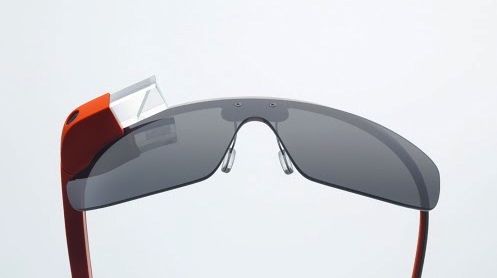
11. Good news for Google Glass
OK, it's already shipping to early Explorers, and we've gotten word on its specs (including that 2011 mobile processor) and ad-preventing features, but we're sure there's still plenty of new stuff to gush about Google Glass.
For example, we only know of a few third-party apps that are in the works, and a developer conference is just about the perfect place to not only announce more but also solicit for additional software.
Not that there's been a dearth of devs, but it never hurts to pitch when you can.
As the days leading up to Google IO wind down, the news surrounding Google's wearable tech is booming. We've heard that Glass may get more iPhone friendly and have text support, that it has shoddy battery life in some situations and can take selfies in the shower.
Google even came out with a how to Glass primer video:
While we don't think Google's quite ready to show off a Google Glass smartwatch, we do anticipate seeing more designs for people who already wear spectacles and perhaps even a few couture cuts from Warby Parker, which is rumored to be cooking up some hip Glass frames.
We're looking forward to demos from the #ifihadglass winners too, something we're sure Google will show off if technological possible to garner more excitement not only about its cool view, but also about Glass' real-world, problem-solving, life-benefiting capabilities.
The #ifihadglass participants have to be more exciting - and pleasing to the eye - than Robert Scoble's recent adventures. Whatever you do, however, don't inadvertently wink.
There has been ballyhooing, however, and despite a general "cool" consensus coming from most reviewers, the flip side is that Google clearly has a lot of work to do to make the average consumer want to pick this hardware up. The price will certainly have to drop, but for now Google IO seems like the most appropriate place to address the groans and reiterate the message that Glass is the future today, but a future that's still a little hazy. If it can clear some air over privacy concerns in particular, then Google Glass likely pick up some steam heading out of the conference.
12. Original Nexus 7 price drop
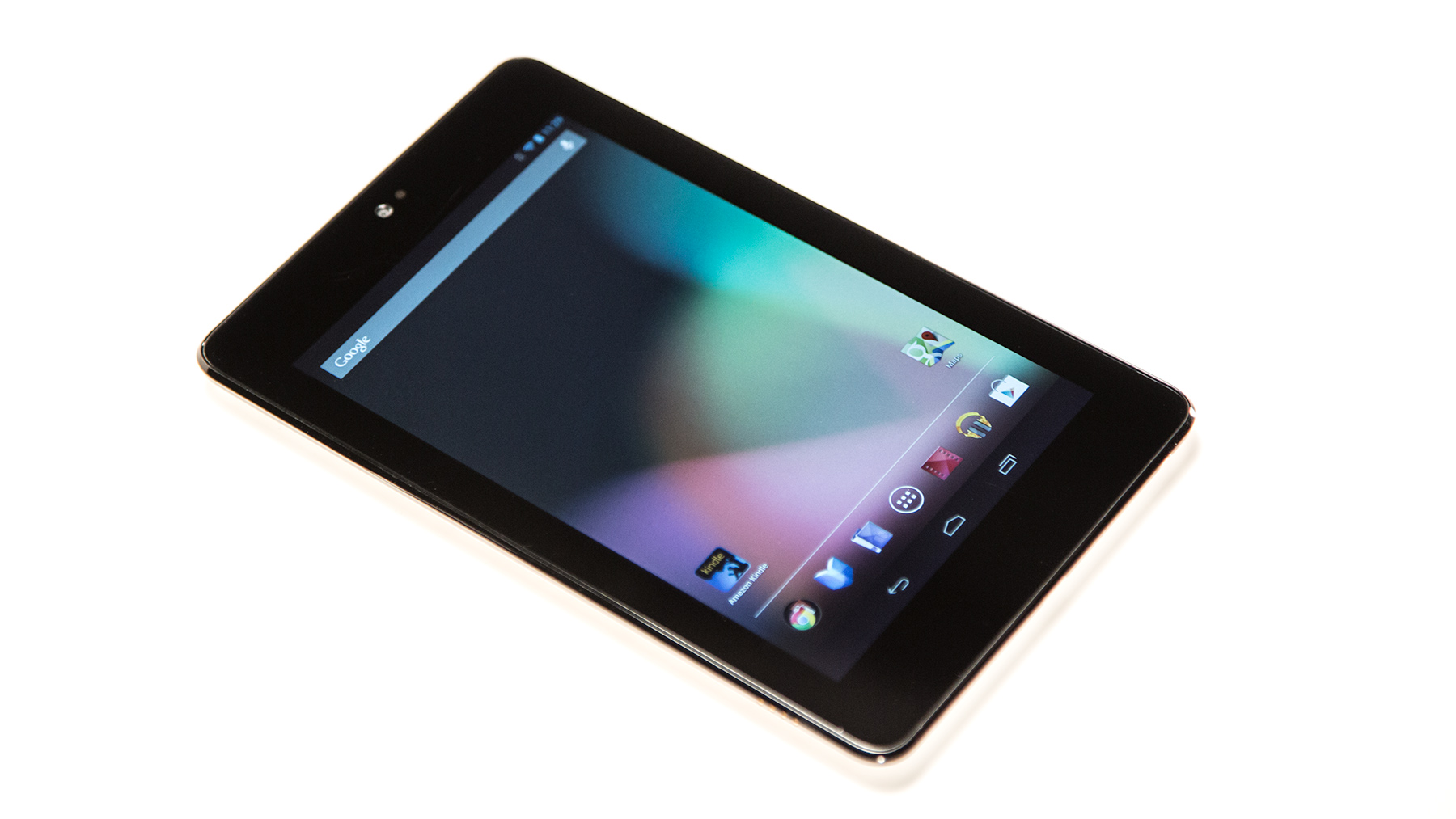
If there's a follow up to the Nexus 7 tablet, and it falls at or near the original's $199 price tag, logic dictates that its predecessor will get a price drop. That would make the Nexus 7 one of the cheapest tablets on the market.
Will Google sell it for $149, $129, or $99? How low will Google go with its Nexus 7 pricing?
Just like Amazon with its Kindle devices, Google's strategy seems to be this: make the hardware affordable, and rake in that app money.
While the Android Play Store is still lagging behind the App Store for tablet-optimized content, there's no better developer motivation than a ton of cheap Android tablets in consumer's hands.
We'd say that if a new 7-inch Nexus tablet happens, a Nexus 7 price drop is a given.
13. Nexus 10 with cellular service
Like the Nexus 7, Nexus 10 is a solid, affordable tablet, at the 10-inch form factor iPad fans are accustom to. However, unlike the iPad and the Nexus 7, the Nexus 10 has now cell service option.
Being dependent on Wi-Fi limits its functionality out and about, and Google fans have been wondering when the 10 will get the backing of AT&T and T-Mobile.
We think it could happen soon, and possibly at Google IO or shortly after.
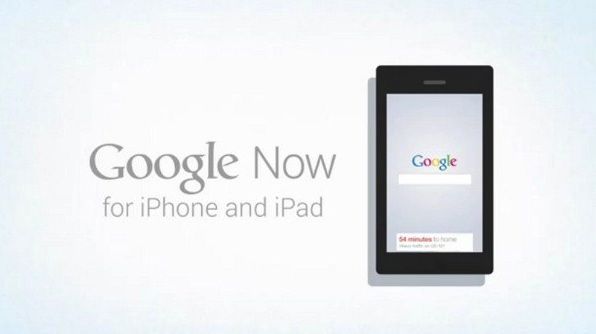
14. Google Now…now
Now has been living in the past for quite some time, and we think Google IO could provide the right atmosphere to unleash a number of updates and announcements.
Google Now finally landed on the iPhone and iPad April 29, putting to bed rumors that the service would indeed head to iOS before long.
Now that's it's ventured to new OSes, we think Google will have plenty to share on more features coming to rival Apple's devices. Surely the April arrival was just the beginning of Now's life on iOS, especially since features like Activity Summary, Boarding Pass, Concerts and Nearby Events are currently MIA.
We also anticipate some new Now features will be outlined at the conference, plus news (perhaps an update?) on the Google Now widget.
There's word it may end up on the web, meaning we have plenty to sniff out about this "Siri-killer" come May.
15. Android@Home walks through the door
This is a Home of a different kind.
It was back at IO 2011 where first met Android@Home, Google's play at a home automation system. We've heard little about it since, but this is 2013 and a different IO.
While we don't believe the home is where Google's heart is, we also know this is a company that likes to cast a wide net, find what sticks and run with it.
If this year's Google IO will bring a resurrection of Android@Home, we won't be the least bit surprised. What it will look like, we're not sure, but a few signs point to it being a talking point at the 2013 conference.
The first is in the Android 4.2.2 update, launched in February. According to various reports, A@H was found tucked inside the updates configuration files along with mesh networks.
In fact, this was the second Android@Home sighting hidden within an update in three months, according to Android Police.
Given the high possiblity we're likely to see Android 5.0 come out of the IO oven, perhaps we'll see Android@Home baked into Key Lime Pie.
What's more, with all the talk of gadget-controlled washing machines, ovens, dish washers and talking toasters (just kidding) at this year's CES, we wouldn't be surprised if Google took noticed and decided to give Android@Home another crack.
16. The Nexus 5, or that LTE capable Nexus 4
The Nexus 4, the cell phone collaboration between Google and LG, is just a few months old, but people are already whispering of a successor.
Even though it packs Android 4.2: Jelly Bean, the latest version of Google's mobile OS, it lags behind the leaders of the smartphone pack in data speeds. To compete with likes of the Galaxy S3, HTC One and iPhone 5, the next Nexus phone needs LTE.
In early May, word spread that Google and LG honchos met to dish on the Nexus 5, plus a LG OLED with Google TV. Seeing either device at Google IO would be a stretch, but if the report from The Korea Times is to be believed, we could see a Nexus 4 successor and new Google TV device before long.
Not too long after, a generic-looking LG prototype phone appeared online, but it begged the question of whether it was the Nexus 5 or the successor to the Optimus G, a.k.a. the Optimus G2. It could be an entirely different phone altogether, but it puts a bug in our ear that perhaps the Nexus 5 isn't too far away.
Lending even more credence to that theory is a report from May 9 that two British retailers had chucked the Nexus 4 from store and virtual shelves. Carphone Warehouse and Phones4U have stopped selling the Nexus 4, though it's still available at O2 and through Google directly. Could this be a house clearing before IO, either for the Nexus 5 or a boosted version of the Nexus 4?
The most likely occurrence would be for Google to address the lack of LTE on its devices and announce some plans for future. It seems too soon to put new phone in people's hands, especially if the new Nexus 7 turns out to be only 3G.
17. We have and/or haven't forgotten Nexus Q
Google must have a love/hate relationship with this black plastic orb.
Where it was once heralded as a home entertainment solution (at Google IO 2012, in fact), the Nexus Q has now fallen into a sort of purgatory page on Google Play. Yes, it's still there, but it's not for sale.
That could change at this year's IO. We could see a Q-vivial, one that addresses the problems of the orb – software issues, a lack of features – and still brings to life the alien-like hardware many remain impressed with.
Or...perhaps not. According to sources of AllThingsD, Google has no plans to resurrect the black orb at this year's IO.
"Google won't have any news on the Nexus Q this week..." wrote ATD. Not much to read into there.
Google hasn't spoken one way or the other when it comes to the Q, but we aren't holding hopes too high we'll see the home entertainment sphere this week, or very soon after.
18. Android 5.0 Key Lime Pie

It's been awhile since Android got whole new version number. Google has been working within version 4 for bit, so it's not unlikely that the 5.0 of Android will get a debut at the upcoming Google IO.
Since the current version is Jelly Bean, Google's naming convention of working down the alphabet via dessert names puts it Key Lime Pie.
Of course, most phones aren't even running 4.2 yet, so if we see Key Lime Pie at Google IO, that doesn't mean it will hit the web anytime soon.
In fact, there's word from "trusty internal sources" that Google won't debut KLP at IO to give phone makers time to catch up in OS updates.
These reliable inside squeakers got some high-level backing just days before IO's kickoff, when Sundar Pichai, the new head of Android, would be light on new launches.
"It's not a time when we have much in the way of launches of new products or a new operating system," he told Wired.
"Both on Android and Chrome, we're going to focus this IO on all the kinds of things we're doing for developers so that they can write better things. We will show how Google services are doing amazing things on top of these two platforms."
There you go.
There's word that Google plans to introduce an intermittent Jelly Bean update in the form of Android 4.3 at IO, a small bump up that seems more plausible than a full blown KLP, especially given Pichai's words.
The 4.3 news comes by way of Android Police which dug out some server logs pointing to a Nexus 4 and Nexus 7 running the refreshed OS. A Redditor also claimed to find 4.3 evidence, though none of this is gospel until mid-May rolls around.
Google will likely just be whetting developers and consumers' appetites, and putting the screws to Apple and it's upcoming iOS 7.